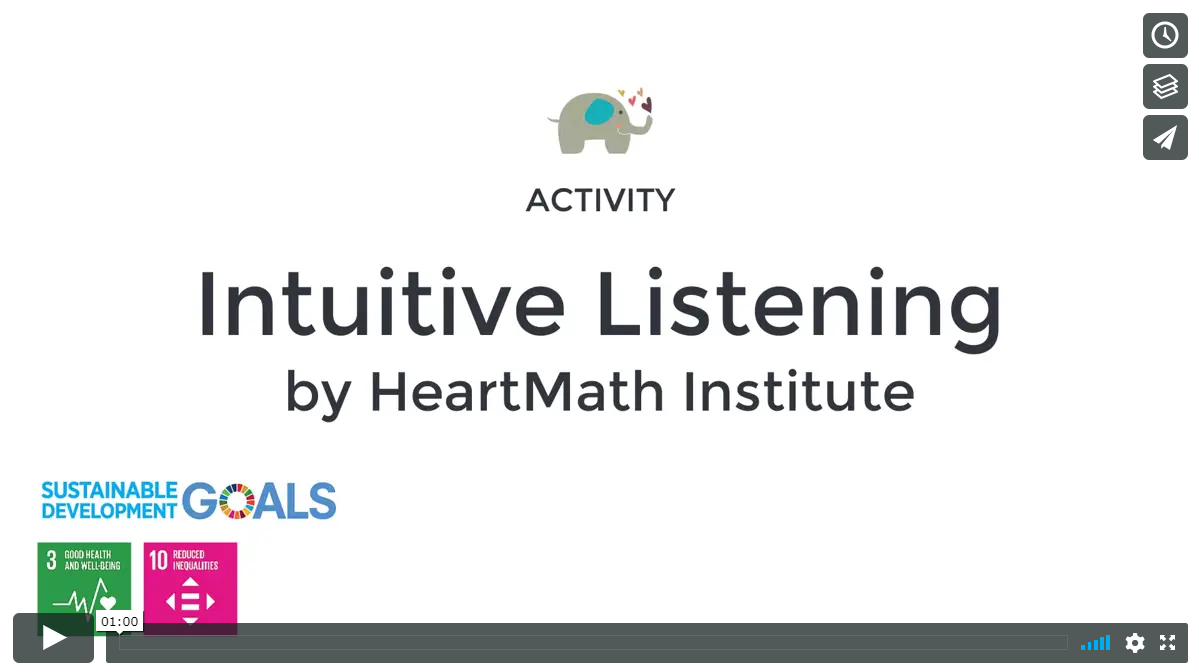HeartMath Intuitive Listening

This game involves focused listening and understanding with a partner. Listening is one of the more difficult skills to develop. It takes time and practice to become a good listener. Oftentimes, our own points of view and emotions color what we hear other people saying. It takes practice to quiet down the thinking brain and listen with an open heart and mind. Part of listening involves intuition--the ability to sense what someone is meaning without the person actually saying it.
Goal
To practice good listening skills
Resources
- Handout (Letter Size) click to download
- Handout (A4 Size) click to download
- Activity Instruction Sheet (optional) click to download
Instructions
- Provide the Intuitive Listening Exercise handout.
- Pair everyone up. One person will volunteer to first speak on one of the suggested themes below (not more than one minute) while the other person listens deeply from the heart. When listening, the listener will listen for the three important levels of communication and “mirror” back what the speaker
- Before beginning the exercise, start with a short 20-30 second heart-focused breathing activity to quiet down the brain. Focus your attention on the area of the heart. Breathe deeper than normal as you maintain your heart focus for the next 20-30 seconds.
- Now begin. The speaker will answer one of the suggested themes but speak no longer than one minute. Suggested Speaker Themes:
- What is one of the funniest things that happened to you last year?
- What is one of the most frightening things that happened to you last year and how did you overcome the fear?
- What is one of the most important lessons you learned last year?
- What was one of the biggest risks you took last year?
- Name one goal you would like to achieve.
- Name one thing that most people don’t know about you.
- After the listener mirrors back what the speaker said, the speaker will then tell the listener whether he/she “got it right” or help him/her if he/she did not.
- Reverse roles.
Discussion
- What was hard about this kind of structured listening? What was easy?
- Which level was the most difficult to mirror back correctly?
- How does intuition play a role in listening?
- Why are non-verbal cues so important in listening?
- How hard was it to not interrupt the speaker?
- What would it be like to practice this kind of listening in some of our more important relationships?
Extensions
After the exercise, invite participants to write several journal entries documenting how well they listened over a week’s time and what led to good listening and what got in the way.
Activity Source
Jeff Goelitz, HeartMath Institute

About this activity…
AGE:
SDG:
GROUP SIZE:
EQ AREA:
SPECIAL COLLECTIONS:
TIME:
5-8 minutes
DEMO VIDEO:


0 Comments